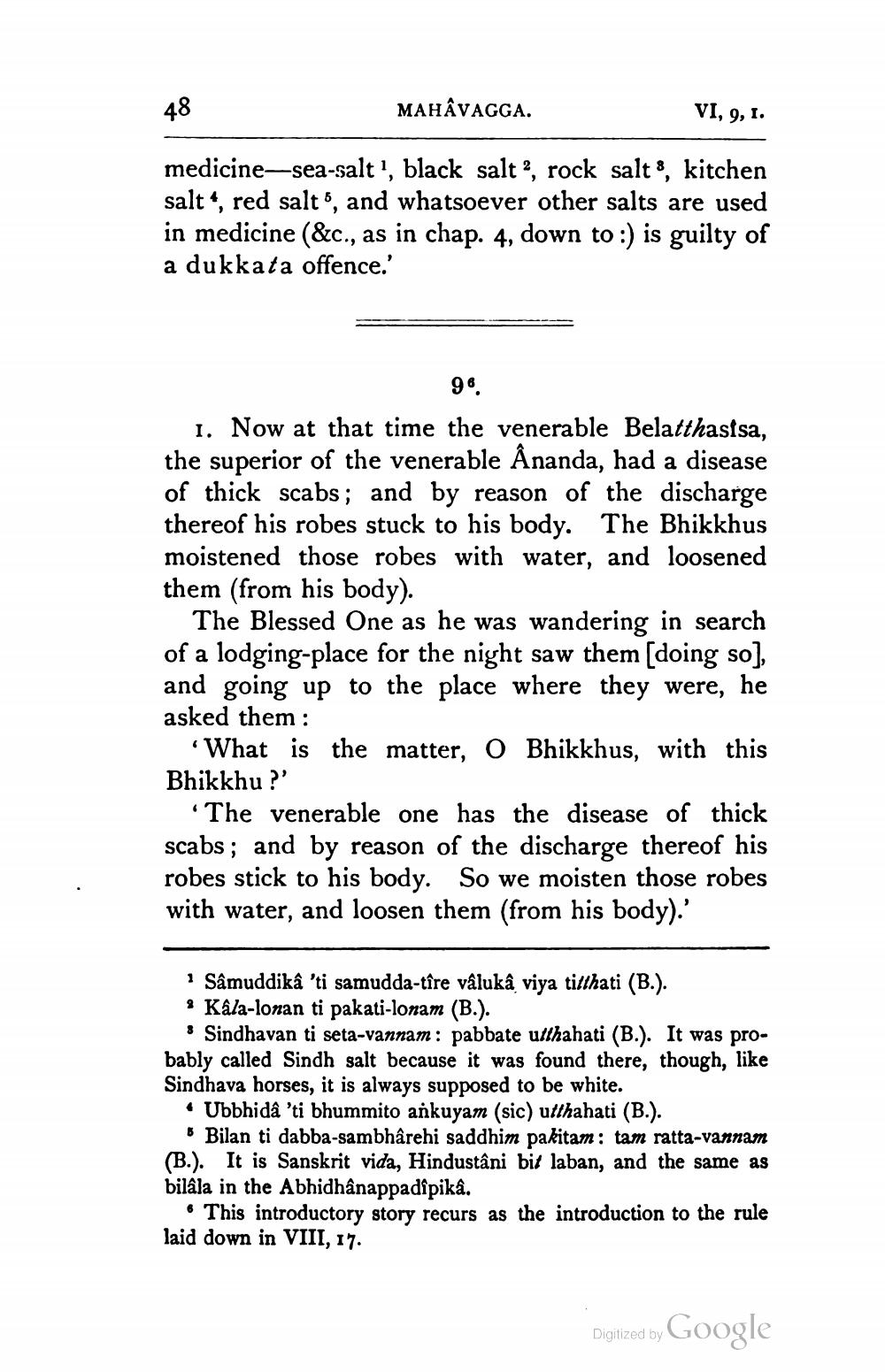________________
48
MAHẬVAGGA.
VI, 9, 1.
medicine-sea-salt ", black salt 2, rock salts, kitchen salt“, red salts, and whatsoever other salts are used in medicine (&c., as in chap. 4, down to :) is guilty of a dukkata offence.'
98.
1. Now at that time the venerable Belatthastsa, the superior of the venerable Ananda, had a disease of thick scabs; and by reason of the discharge thereof his robes stuck to his body. The Bhikkhus moistened those robes with water, and loosened them (from his body).
The Blessed One as he was wandering in search of a lodging-place for the night saw them [doing so), and going up to the place where they were, he asked them :
What is the matter, O Bhikkhus, with this Bhikkhu ?'
The venerable one has the disease of thick scabs; and by reason of the discharge thereof his robes stick to his body. So we moisten those robes with water, and loosen them (from his body).'
Sâmuddikâ 'ti samudda-tîre vâlukâ viya tillhati (B.). . Kala-lonan ti pakati-lonam (B.).
* Sindhavan ti seta-vannam: pabbate utthahati (B.). It was probably called Sindh salt because it was found there, though, like Sindhava horses, it is always supposed to be white.
• Ubbhidâ 'ti bhummito ankuyam (sic) utthahati (B.).
* Bilan ti dabba-sambhârehi saddhim pakitam: tam ratta-vannam (B.). It is Sanskrit vida, Hindustani bit laban, and the same as bilala in the Abhidhânappadipika.
. This introductory story recurs as the introduction to the rule laid down in VIII, 17.
Digitized by Google
Digitized by




